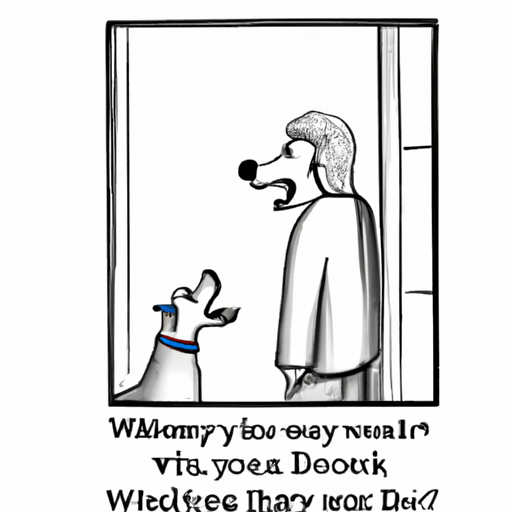Have you ever noticed your furry friend yawning as you chat away, and wondered if there’s more to it than meets the eye? Understanding your dog’s behavior can be a fascinating journey that deepens the bond between you. Let’s explore the reasons why dogs yawn when you talk to them.
- Table of Contents
- Understanding Dog Yawns
- Yawning as a Calming Signal
- Yawning and Empathy
- Yawning and Boredom
-
FAQs
-
Key Takeaways
- Dogs may yawn when you talk to them due to stress, empathy, or boredom.
- Yawning can be a calming signal in dogs.
- Dogs may also yawn in response to seeing humans yawn.
Understanding Dog Yawns
First, it’s essential to understand that dogs yawn for a variety of reasons, much like humans. However, unlike humans, dogs often use yawns as a form of communication.
One common reason for a dog’s yawn is physiological necessity—like us, they yawn to increase oxygen intake, especially when they’re tired. However, studies such as this one have shown that yawning can also be a form of non-verbal communication in dogs.
In fact, this article on pet behavior from OneTopDog.com provides an in-depth look at how dogs communicate with their human companions.
Yawning as a Calming Signal
In the context of dogs yawning when you talk to them, one explanation is that it’s a calming signal. This term was coined by Norwegian dog trainer Turid Rugaas, who identified over 30 calming signals that dogs use to communicate with humans and other animals.
A dog might yawn to show it’s not a threat, or to signal that they’re feeling stressed. They may do this if they sense that their owner is upset, or if the situation they’re in feels tense. Importantly, it doesn’t necessarily mean that your dog is bored with your conversation!
This guide to dog calming signals provides more information on this fascinating aspect of dog behavior.
Yawning and Empathy
Another theory is that dogs yawn in response to human yawns due to empathy. In a study published in the journal Biology Letters, researchers found that dogs were more likely to yawn after their owners did, suggesting that dogs are capable of empathizing with humans.
The researchers suggested that contagious yawning might be a form of bonding, similar to how humans bond through shared experiences. So, your dog yawning when you talk to them could mean they’re connecting with you on an emotional level.
Yawning and Boredom
Finally, it’s worth considering that your dog may simply be bored. Just as humans yawn when they’re bored or tired, dogs might do the same. If your dog yawns when you talk to them, it could be a sign that they’re ready for a change of pace.
Consider engaging them with a game, a walk, or some other form of physical activity. If you’re looking for ideas, check out this list of fun activities for dogs.
FAQs
1. Why does my dog yawn when I pet them?
Your dog might yawn when you pet them as a calming signal, or because they’re relaxed and content. If they seem otherwise happy and relaxed, it’s likely not a cause for concern.
2. Do dogs yawn when they’re happy?
Yes, dogs can yawn when they’re happy. However, context is important. If your dog is yawning in a relaxed and comfortable environment, it could be a sign of contentment.
3. How can I tell if my dog is yawning due to stress or boredom?
Observing your dog’s overall body language can help. If they’re yawning along with showing other signs of stress (like licking their lips or tucking their tail), they might be stressed. If they’re otherwise relaxed, they might simply be bored.
Conclusion
Understanding your dog’s yawns can deepen your relationship and help you respond to their needs more effectively. Whether your dog yawns due to stress, empathy, or boredom, these insights can help you better understand your four-legged friend. Remember, every dog is unique, and what’s true for one dog might not be true for another. Always strive to understand your dog’s individual behaviors and needs. It’s all part of being a responsible, loving caregiver.



